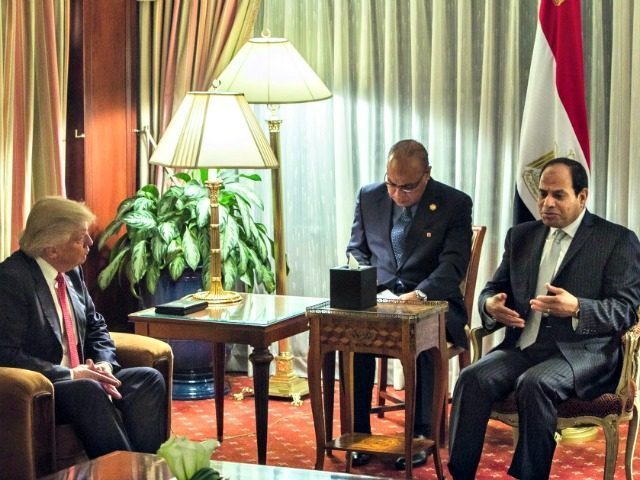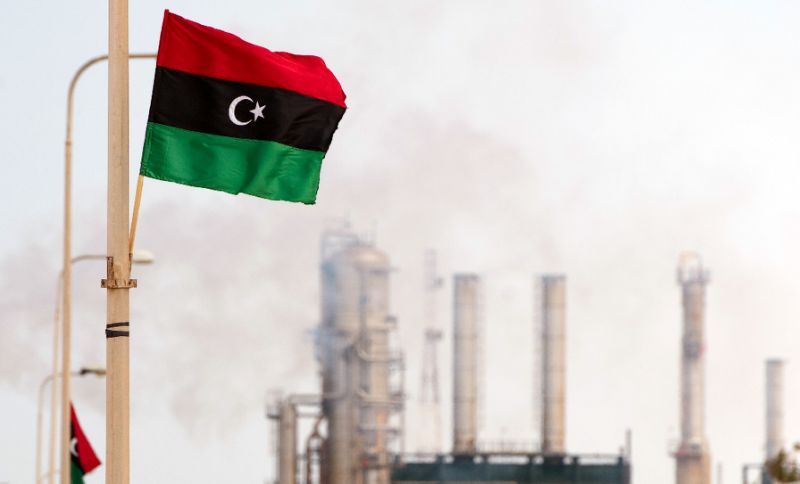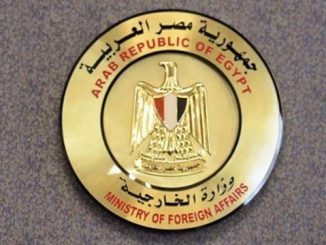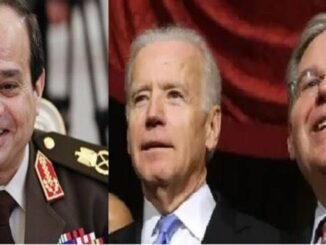
Abdel Fattah al-Sisi was among the first leaders who congratulated Donald Trump for winning the US presidential elections, hoping to enhance cooperation between the two countries.
Egypt had entered the American elections arena from a wide door but during the country’s most difficult circumstances. The state-owned and semi-official media have held the western powers responsible for the greatest part of Egypt’s unprecedented political and economic crisis, according to CNN Arabic.
But after Donald Trump has won the US presidential elections, it seems that the al-Sisi regime will be among the biggest Middle East beneficiaries from the access of Trump to power, as the new American president. It is known that Trump opposes the attempts of change in the region known as “The Arab Spring”, tends to support stability, and is against any radical changes in the region.
In fact,” Egypt’s relations with the White House has deteriorated because of Washington’s explicit stances toward the internal political situation in Egypt and the suspension of the military aid or part of it more than once,” said the CNN.
So, Egypt has sought to enhance its alliances in other places such as Moscow, which has become a close capital to Cairo, in addition to Paris that was linked to the Egyptian military institution via arms deals.
Away from the different stories narrated by some Egyptian figures about the American role in supporting the Muslim Brotherhood and opposing many actions that followed the ouster of President Mohamed Morsi, however Washington had, more than once, shown its interest in continuing the political process in Egypt. At the same time, Washington warned of involvement in repression and stressed its support for counter-terrorism.
In fact, U.S. froze arms deliveries to Egypt in the aftermath of the 2013 coup, but eventually released aid in March 2015, delivering F-16 fighter jets and tank turrets. But later Egypt received in May an initial shipment of 762 mine-resistant, ambush protected (MRAP) vehicles from the United States, which will be used in army operations in North Sinai, which was considered a shift in the US policy towards the al-Sisi regime.
The change of Obama’s administration toward providing support to the al-Sisi regime appeared within the need to “prioritize the immediate needs of the international fight against extremists like ISIS over human rights concerns, embracing an authoritarian regime in Egypt that is battling ISIS-affiliated militants in the Sinai Peninsula and attempting to police a long desert border with Libya, where ISIS managed to establish itself in the chaos of that country’s civil war,” said the Time.
Egypt’s Position in Trump Campaign
In fact, Egypt has been in the heart of the competition between Trump and Clinton since the beginning of their campaigns last May, according to the CNN.
At that time, the Egyptian flight has crashed during its trip from Paris to Cairo and as rumors spread about the reason behind the catastrophic accident, Trump tweeted on his personal account on Twitter, where he held ‘terrorism’ responsible for the accident before waiting for any further details.
Trump also described terrorism as “a disease inside Islam” and held the ‘weakness’ of the United States responsible for its emergence.
In addition, Trump held Clinton responsible for the events in the Arab world, including the situation in Egypt. In his speech last July, Trump said that “death” has been the only legacy left by Clinton after she quitted the state department office. He added that Clinton was responsible for the Daesh emergence and the chaos in Iraq, Libya, Syria, and Egypt.
In June, Trump accused his democratic rival of toppling Mubarak’s regime and paving the road for the Muslim Brotherhood saying, “When Clinton took the state department’s office in 2009, the world was a different place: Libya was a cooperative country, Iraq was witnessing a withdrawal in the rate of violence, Syria was under control, Iran was constrained with sanctions, Egypt was ruled by a friend-regime that respected the peace treaty with Israel and Daesh organization didn’t even exist,” reported the CNN.
Trump – yesterday’s Republican Candidate, Today’s US President – had claimed that by 2014, Clinton “has destroyed the entire Middle East,” adding, “She also helped to oust a friend-regime (in Egypt) and replaced it with a hard-line regime related to the Muslim Brotherhood. Though the Egyptian Army has succeeded to restore power, however, Clinton opened the ‘can of evil’ of the “extremist Islam” according to Trump’s words.
Trump Praises al-Sisi
One of the remarkable events in Egypt’s position on the US presidential election was on September 20, 2016, when Abdel Fattah al-Sisi received both Trump and Clinton ,when Trump announced his appreciation to al-Sisi and the Egyptian people because “They are defending their country and the whole world” stressing that the relations with Cairo will be strengthened once he reached power and that Egypt can rely on him.”
On the other side, when al-Sisi was asked directly about his opinion on the US elections – during an interview with the CNN after meeting with Trump – and the possibility that Trump would make a strong leader, al-Sisi replied by saying “no doubt”.
Al-Sisi also underestimated Trump’s statements against Muslims, saying that many stances which are released during the electoral campaigns are changed later on.
Al-Sisi led a military coup in July 2013 ousting President Mohamed Morsi, who had won Egypt’s first democratic presidential elections following the Arab Spring and the overthrow of the longtime autocrat Hosni Mubarak. The military takeover that was led by Sisi, the former chief of Egypt’s armed forces, opened a period of political violence. The army and the security forces killed more than two thousand people and jailed an estimated 40,000 people, including protesters, students, and journalists. Sisi became president in 2014 in an election that was widely regarded as “a fait accompli,” said the Times.
For many observers, Trump’s meeting with Abdel Fattah al-Sisi isn’t a strange thing as Trump has voiced admiration of a range of authoritarian leaders, hailing Russia’s President Vladimir Putin as a strong leader and praising former Iraqi dictator Saddam Hussein as an effective killer of “terrorists”.
Moreover, Trump’s team released an account of his meeting with Sisi that was striking in how much praise the Republican heaped on Egypt. Trump expressed to Sisi “his strong support for Egypt’s war on terrorism, and how under a Trump administration, the United States of America will be a loyal friend, not simply an ally, that Egypt can count on in the days and years ahead”, as reported by Politico.
Trump has previously said that if elected president, he will work with Sisi to fight terrorism, describing him in a speech as someone who recognizes that “this ideology of death must be extinguished.”
In this context, it is believed that now as Trump has won US presidency, he will probably enhance U.S. support for al-Sisi, who casts his regime as a bulwark against extremist groups.
In this context, Mohamed Ahmed, a researcher on Egypt at Amnesty International was cited by the Times saying, “We hear that Trump will be supporting Sisi in the so-called fight against terrorism and this will lead to cracking down more on human rights, leading to a massive deterioration in the human rights situation in Egypt.”



